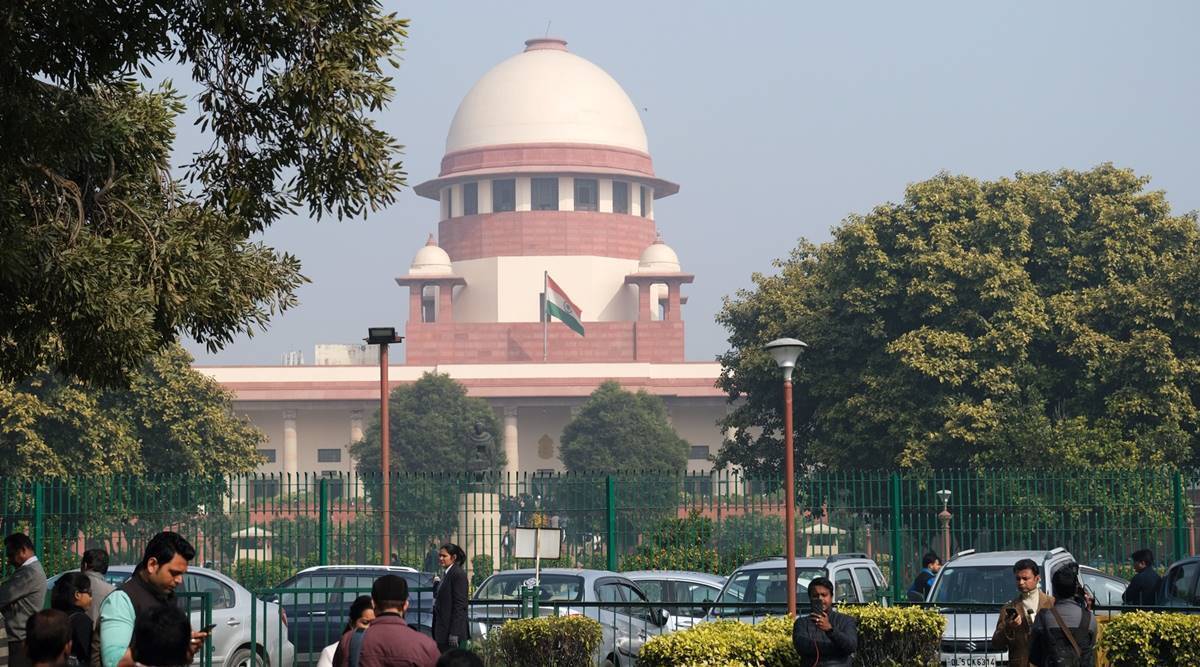Wednesday, the Supreme Court tentatively agreed with the Uddhav Thackeray-faction that legislators must defer to the party’s mandate in a constitutional democracy, but added that it will have “very serious ramifications” if the court takes over the Speaker’s role in determining whether or not to disqualify MLAs belonging to the faction led by Maharashtra chief minister Eknath Shinde, for breaching the party line when the rift between the two factions came to
“This is a pivotal moment for a constitutional democracy. You are elected as a representative of a party, and your behaviour must be dictated by the party regardless of your numerical strength…ultimately, the party is supreme, and legislators only express the views of the party,” stated a constitution bench led by the Chief Justice of India, Dhananjaya Y. Chandrachud.
But, the bench, composed of justices MR Shah, Krishna Murari, Hima Kohli, and PS Narasimha, was eager to add a caveat to the principle: “So far, so good. Therefore, the following question is: what is the consequence? In this instance, you will finally determine that the individual has been disqualified. But, that is a matter for the Speaker to decide.”
It said, “If you claim you don’t want to go to the Speaker and that only the court should decide, it causes us concern. If we start taking over these jurisdictions, the constitutional structure will be severely impacted.”
As it continued hearing a slew of petitions stemming from last year’s vertical split in the Shiv Sena and the legal issues surrounding the contours of disqualification proceedings and the authority of the governor and the speaker in their respective spheres, the constitution bench expressed its reservations.
Senior counsel Kapil Sibal, arguing for the Uddhav group, urged the bench to decide the disqualification petitions against the Shinde faction without referring it to the new Speaker, Rahul Narwekar, who, the lawyer argued, could not be expected to render an impartial decision due to his alliance with Shinde and BJP.
The bench, however, responded, “The Speaker must determine whether or not there was a disqualification. This is a territory we are unable to enter. Right or incorrect, this is the system we, the people, have adopted. This is the issue that causes us concern. You may encounter the Speaker of the House of Representatives and a similar circumstance tomorrow. Can the Supreme Court say, “We’re sorry, but we’re now overriding the Speaker’s mandate?”
Sibal, aided by advocate Amit Anand Tiwari, responded that the apex court had assumed jurisdiction in a previous case, and that the current situation is the result of a judicial order issued in June 2022, when the then-vice-speaker was prevented from deciding the disqualification petitions against Shinde and other MLAs from his camp.
“Assuming this court had not issued the decree on June 27, what would have transpired?” We would have maintained that the Speaker should decide… In addition, the court’s actions were influenced by your Speaker’s actions at the time. “Had your Speaker chosen to obey the law and not give the opposing side only two days to react to disqualification notifications, this court would have required them to do so,” answered the bench, which will continue to hear the matter on Thursday.
The constitution bench is seized of a number of petitions filed by Shinde and Thackeray factions concerning disqualification proceedings against the MLAs of both camps, the election of Narwekar as new Speaker, the recognition of a new party whip for Shiv Sena, and the governor’s directive to Thackeray for proving majority on the floor of the House and then inviting Shinde to form the new government in the state.
In June of last year, Shinde and a group of Shiv Sena legislators supporting him broke away from the Uddhav Thackeray faction. With the future of the Shiv Sena-led MVA government in Maharashtra at jeopardy, the then-vice-speaker requested that the rebels answer to a notice of disqualification from the party (there was no Speaker of the house at the time). But, several of the rebel MLAs have already filed a petition seeking the dismissal of the deputy speaker. Invoking precedent from a 2016 case, the court requested on June 27 that the deputy speaker grant the legislators until July 12 to answer to the disqualification notice.
The Uddhav camp has requested a review of the 2016 verdict upon which the court in June of last year relied. The court has stated that it cannot decide whether to request a seven-judge bench to review this case law until it has heard arguments in the current case.
This meant they might have voted against the government in the June 30 vote of confidence convened by the governor. Thackeray resigned as chief minister prior to the vote of confidence, and Shinde and his MLAs, supported by the BJP, created an alliance administration.
